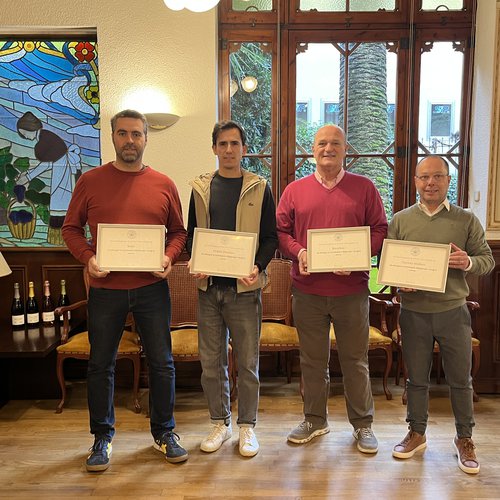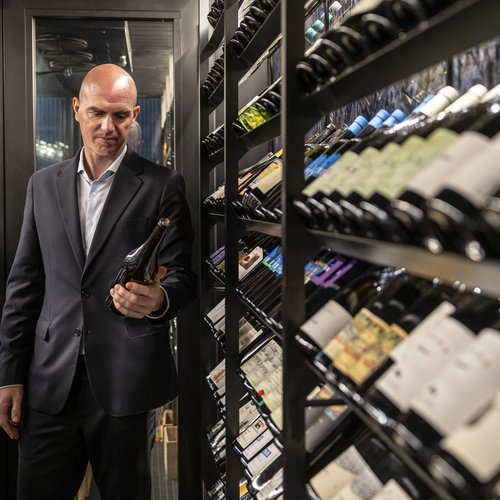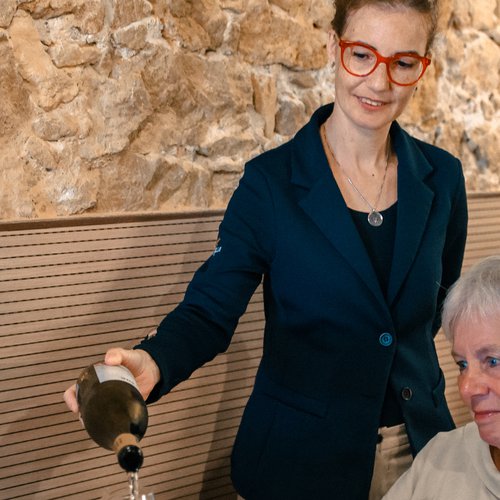D.O. CAVA confronts product shortage by revaluing its sales
Unit sales fell slightly in the domestic market (3.5%) and by 18% in international markets. Sales totalled 218 million bottles.
- Organic Cavas grew by 15.23% and now account for 37.3 million bottles.
- Two new Integral Winemakers and a new Cava de Guarda Superior de Paraje Calificado join the D.O. CAVA.
The severe and continuous drought in the region over the last three years has considerably reduced the production and supply capacity of the D.O. CAVA.
The German market has been the most affected by this shortage of product, with a drop of almost 20 million bottles (19.9 million). Cava has taken advantage of the situation to premiumise its sales, with an increase in both the domestic market of 7.2% (down 3.5% in volume; up 3.7% in value, according to a study by Circana) and in international markets, optimising its goodwill and its customers. In 2024, the sector achieved total sales of 218 million bottles, 13.39% lower than 2023, of which 78 million were sold on the domestic market, a decrease of 3.56%, and 140 million on international markets (down 18.05%). Belgium continues to be the main foreign market, with 20.3 million bottles (7.80% lower than 2023), followed by the United States (down 4.58%) and the United Kingdom (down 11.66%). Within the top 10 markets, three have stood out with increased sales: Japan (4.66%), the Netherlands (3.96%) and Sweden (0.02%).
By categories, the increase in sales of organic Cavas (in 2024 they reached 37.3 million bottles, growing by 15.24% on the previous year), and the success of the D.O. CAVA’s most exceptional Cavas, is notable. The Cavas de Guarda Superior de Paraje Calificado have grown by 13.33% (58.54% in the domestic market), with plans to increase to 11 references with the incorporation of a new Cava in this category in 2025. The Cavas de Guarda Superior Gran Reserva only fell by 1.32%, while all the other categories saw their sales fall: Cavas de Guarda by 12.79%, Reserva by 21.27%, and rosés by 23.19%.
The president of the D.O. CAVA, Javier Pagés, is optimistic about the future due to the strong position that Cava holds among the world's quality sparkling wines, the growing demand from consumers for this category, and the sustained efforts of the entire sector to continue to revalue the product. He underlined "the commitment to sustainability, traceability, and quality in the D.O. CAVA". It is worth noting that this year – 2025 – all Cavas de Guarda Superior will be 100% organic.
Javier Pagés also highlighted "the Denomination of Origin's focus on Cavas de Guarda Superior. This category achieves sales of 22.4 million bottles and brings together a great diversity of wineries that produce Cavas with long ageing, organic, Paraje, and Integral Producers, all of them achieving great recognition worldwide". He also highlighted the intense promotional agenda that has been developed in recent years, both in the domestic and international markets, highlighting initiatives such as the Cava Academy training courses, with six cohorts in 2024 - one of them in collaboration with WSET - and dissemination actions among professionals in the sector with large showrooms held in Barcelona, Madrid and London, where more than 200 professionals gathered in each city. In addition, the D.O. participated in major food and wine events such as Passeig de Gourmets, Hotel Wine Fest and Hotel Tapa Tour in Barcelona and Madrid.
Other outstanding actions that the CAVA D.O. also developed, on an international level, are the innovative Cava Discovery Theatre, a museum of Cava in Tokyo that received visits from more than 700 people in one week; and Discovery Week, a promotional activity carried out over one week in restaurants and specialised shops in key cities on the international scene: Tokyo, New York, Washington D.C., and London. Additionally, six Masterclasses were held in the main hostelry and catering schools in Belgium, as well as more than 10 missions with the main international prescriptors in the sector.
D.O. CAVA: Richness and diversity
The D.O. CAVA's positioning strategy is based on the richness and diversity of the Cavas de Guarda Superior, synonymous with the highest excellence, thanks to the work carried out by the 200 winemakers with differing philosophies. These wineries coexist, with the common goal of producing quality Cavas, reflecting the richness and diversity that encompasses the designation of origin. In this sense, the president of the D.O. CAVA, Javier Pagés, wanted to highlight "the great qualitative and value proposition that Cavas represent today among the best sparkling wines in the world produced using the traditional method. A great source of pride for the sector".
Within this richness of the CAVA D.O. are the Integral Winemakers, wineries of the designation that carry out the entire Cava production process from start to finish on their own property, to which two new wineries have recently been added, bringing the total to 17. Mastinell, from Vilafranca del Penedès, and the Ondarre winery from La Rioja (Bodegas Olarra Group, are the two new CAVA D.O. Integral Winemakers.
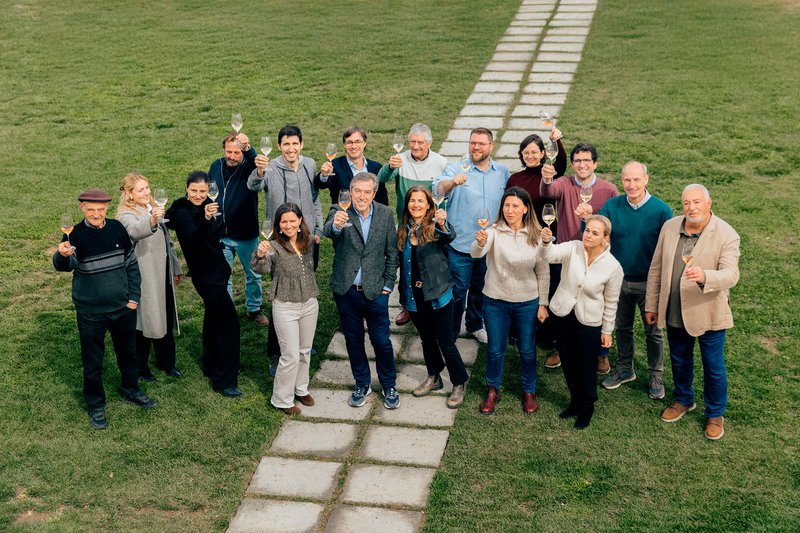
These two join the 15 wineries that have already obtained a seal accrediting that they carry out the entire winemaking process on their property. The mark "Integral Winemaker" is used only for those wineries that press and make 100% of the base wine for their own Cava production, as well as producing 100% of their own Cava on the same property (the winery), and that do not acquire rack-aged and riddled bottles from other producers. The "Elaborador Integral" label can only be used by those wineries that have been annually granted the corresponding entitlement by the CAVA D.O. Regulatory Council, based on compliance with the requirements established for this purpose over the previous two years.
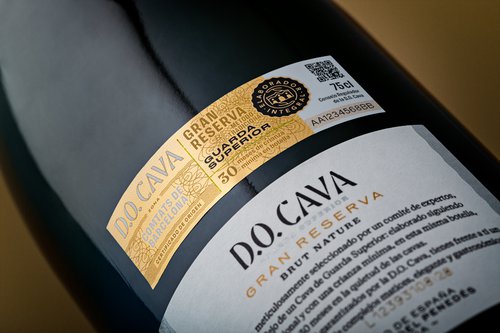
The "Elaborador Integral" seal can only be used for Cavas that have been made entirely on the same estate, are marketed under brands that are not shared by other Cava producers, and which fully comply with the requirements of the label. This seal may not be used on products under the "made to order" formula (in other words, to be sold under another label), and the labelling must in show the company name of the producer. Failure to comply with any of the requirements means that the right to use the seal is forfeited for the two financial years following the year of non-compliance.
During today's press presentation of the 2024 results, the best sommelier of the year in Catalonia, Cyril Vermeulen from the El Celler de Can Roca restaurant in Girona, conducted a tasting with 17 Integral Winemaker Cavas. This demanding category currently encompasses the following Cavas: Alta Alella, Avinyó, Blancher, Bodegas Escudero, Can Sala, Suriol, Celler Carles Andreu, Gatell, Giró del Gorner, Juvé & Camps, Kripta, Mastinell, Ondarre, Parató Vinícola, Parés Baltà, Torné & Bel, and Vins El Cep.
D.O. CAVA: commitment to origin, land and sustainability
With international sales of more than 70%, Cava is the Spanish D.O. that has the highest exports. The Cava industry brings together over 38,000 hectares of vineyards and more than 6,200 winegrowers, and its 349 associated wineries are present in over 100 countries. Cava pairs harmoniously with every type of gastronomy, and is made using the traditional method, involving a strict commitment to origin, land and sustainability.
